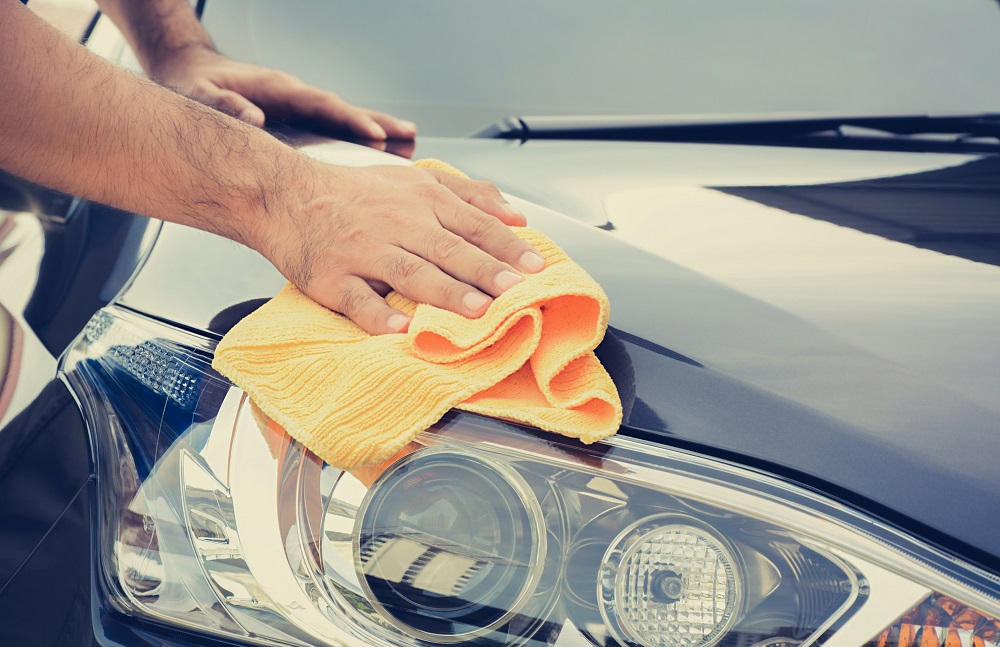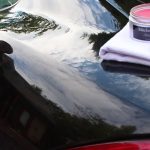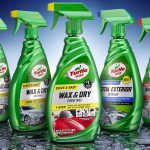Car enthusiasts and proud car owners, the longevity of that radiant shine on your vehicle is not just about aesthetics—it’s a testament to the care and attention you invest in your prized possession. So, let’s embark on a journey to explore the intricacies of car wax durability, unraveling the mysteries that surround its longevity.
Table of Contents
- Understanding the Lifespan of Car Wax
- Signs It’s Time for a Rewax
- Maximizing Car Wax Longevity: Pro Tips
- Regular Maintenance for a Gleaming Finish
- Expert Tips to Prolong the Life of Your Car Wax
- 1. Master the Art of Application
- 2. Invest in High-Quality Applicators
- 3. Consider Synthetic Sealants
- 4. Don’t Skip the Pre-Wax Prep
- 5. Apply Wax in Sections
- 6. Mind the Drying Time
- 7. Be Mindful of Wax Buildup
- 8. Opt for Waterless Washes
- 9. Shield Your Car from the Elements
- 10. Embrace Quick Detailing
- 11. Know When to Rewax
- 12. Store Waxes Properly
- 13. Consider Professional Detailing
- 14. Mind Your Speed When Buffing
- 15. Enjoy the Process
- FAQs: Navigating the Road to Long-Lasting Car Wax Brilliance
- 1. How Often Should I Wax My Car for Optimal Protection?
- 2. Does the Type of Wax Matter?
- 3. Can I Wax Over Old Layers of Wax?
- 4. Is it Necessary to Clay Bar Before Waxing?
- 5. Can I Wax a New Car?
- 6. What’s the Difference Between Paste and Liquid Wax?
- 7. How Do I Remove Stubborn Wax Residue?
- 8. Can I Wax Matte or Satin Finishes?
- 9. Does Waxing Protect Against Scratches?
- 10. Can I Wax Vinyl or Plastic Trim?
- 11. Should I Wax Glass Surfaces?
- 12. What’s the Ideal Temperature for Waxing?
- 13. Can I Wax a Wrap or Decals?
- 14. How Can I Protect My Car Wax in Winter?
- 15. What’s the Difference Between Waxing and Polishing?
- Conclusion: A Shiny Future for Your Vehicle
Understanding the Lifespan of Car Wax
Car wax, often seen as the guardian of your vehicle’s exterior, stands between the elements and your car’s lustrous paint. To comprehend its lifespan, we must consider the amalgamation of various factors that influence its durability.
Factors Influencing Car Wax Longevity
- Quality Matters: The world of car wax is diverse, with a multitude of brands and formulations. Opting for a high-quality product ensures a robust shield against the elements.
- Application Technique: Think of waxing your car as an art. The technique matters. An even application, using the right tools, ensures that every inch of your vehicle is covered, contributing to the wax’s extended life.
- Environmental Conditions: Your car, like you, reacts to its surroundings. Extreme heat, frequent rain, and harsh winters can accelerate the wear and tear of your car wax.
- Frequency of Use: How often you use your car matters. Regular commuters might need to wax their cars more frequently than those who drive occasionally.
Signs It’s Time for a Rewax
Even the most vigilant car owner can miss subtle signs indicating that the protective shield is wearing thin. Knowing these signs can be the difference between a gleaming finish and a lackluster appearance.
1. Water Beading Fades
One of the telltale signs that your car wax is losing its effectiveness is the disappearance of water beads on the surface. When the water stops forming beads and instead spreads out, it’s time for a reapplication.
2. Visible Oxidation or Fading
If your once-vibrant car paint starts to look dull or shows signs of oxidation, your wax is losing its battle against the elements.
3. Texture Changes
Run your fingers over your car’s surface. A smooth finish is a testament to a healthy wax layer. If it starts feeling rough, it’s an indication that the wax is breaking down.
Maximizing Car Wax Longevity: Pro Tips
Now that we’ve pinpointed the factors influencing car wax lifespan and recognized signs of wear, let’s delve into practical tips to extend the life of your car wax.
1. Choose the Right Wax
The market offers a plethora of wax options, each catering to different needs. Assess your car’s paint type and the prevailing environmental conditions before selecting a wax.
2. Prep Your Vehicle
Wax adheres better to a clean surface. Before applying wax, ensure your car is free of dirt and contaminants. Consider using a clay bar to remove stubborn impurities.
3. Apply in the Shade
Timing is crucial when waxing your car. Applying wax under direct sunlight can lead to uneven application and premature drying. Choose a shaded area for a more forgiving process.
4. Layering for Enhanced Protection
For an added layer of defense, consider applying multiple thin layers of wax. Each layer reinforces the protective shield, making it more resilient against the elements.
Regular Maintenance for a Gleaming Finish
Caring for your car doesn’t stop after the waxing process. Regular maintenance is the secret ingredient to a sustained, brilliant shine.
1. Wash with Care
Invest in a high-quality, pH-balanced car wash soap. Use soft microfiber towels or a lambswool mitt to avoid unintentionally stripping away the wax during the washing process.
2. Schedule Regular Inspections
Make inspecting your car a routine. Periodic checks allow you to identify early signs of wear, ensuring timely interventions to maintain the protective layer. (See Also: Do I Need Soap to Wash My Car? Exploring the Essential Role of Soap in Car Washing)
3. Quick Detailing for Touch-ups
Consider keeping a bottle of quick detailing spray handy. A quick spritz and wipe can refresh the wax and keep your car looking impeccable between thorough waxing sessions.
Expert Tips to Prolong the Life of Your Car Wax
Ensuring your car maintains that showroom shine isn’t just about the quality of the wax; it’s about how you apply and care for it. Here are some expert tips to elevate your car waxing game and extend the life of that radiant finish.
1. Master the Art of Application
Achieving an even wax application is an art form. Instead of globbing on a thick layer, apply multiple thin coats. This not only enhances protection but also ensures a smoother, more uniform finish.
2. Invest in High-Quality Applicators
The tools you use matter. Opt for soft foam applicators or microfiber cloths to apply and buff the wax. These materials minimize the risk of scratches and contribute to a flawless shine.
3. Consider Synthetic Sealants
While traditional carnauba wax has its merits, synthetic sealants often outlast their natural counterparts. They provide robust protection against UV rays and environmental contaminants, making them a worthy alternative.
4. Don’t Skip the Pre-Wax Prep
Preparing your car’s surface is a crucial step. Use a clay bar to remove embedded contaminants before waxing. This ensures a clean canvas for the wax to bond, maximizing its effectiveness.
5. Apply Wax in Sections
Divide and conquer. Work on your car in small sections, ensuring each part receives adequate attention. This method prevents the wax from drying before you can buff it, resulting in a more polished finish.
6. Mind the Drying Time
Allow the wax to cure properly. Rushing this step can lead to uneven coverage and diminish the wax’s longevity. Follow the manufacturer’s recommendations for drying time for optimal results.
7. Be Mindful of Wax Buildup
While layering is beneficial, excessive buildup can lead to unsightly residue. Periodically strip off old layers using a pre-wax cleaner to maintain a clean and vibrant appearance.
8. Opt for Waterless Washes
Traditional washing methods can strip away wax layers. Consider waterless wash solutions that clean without compromising the protective coating, ensuring a longer-lasting shine.
9. Shield Your Car from the Elements
Parking in a garage or shaded area protects your car from harsh sunlight and extreme weather conditions, minimizing the impact on the wax’s durability.
10. Embrace Quick Detailing
Quick detailing sprays are your best friend between thorough waxing sessions. A swift application can revive the gloss and enhance protection, especially in high-traffic or exposed areas.
11. Know When to Rewax
Don’t wait for signs of wear to become glaring. Establish a regular waxing schedule based on your usage and environmental conditions to maintain a consistently stunning exterior.
12. Store Waxes Properly
Proper storage preserves the efficacy of your wax. Keep it in a cool, dry place away from direct sunlight. This simple practice ensures the wax is ready to perform at its best when you need it. (See Also: How to Fix Flaking Chrome Rims: Ultimate Guide for Chrome Wheel Restoration)
13. Consider Professional Detailing
Every once in a while, treat your car to professional detailing. Detailers have access to high-quality products and techniques that can elevate your car’s appearance and extend the life of your wax.
14. Mind Your Speed When Buffing
Buffing at high speeds can generate excess heat, potentially compromising the wax’s integrity. Opt for lower speeds and let the machine do the work for a safer and more effective buffing process.
15. Enjoy the Process
Car waxing isn’t just a maintenance task; it’s an opportunity to bond with your vehicle. Approach it with patience and a sense of enjoyment, and the results will undoubtedly reflect your dedication.
Incorporating these expert tips into your car care routine will not only prolong the life of your car wax but also elevate the overall appearance of your cherished vehicle. Happy waxing!
Maintaining the longevity of your car wax involves more than meets the eye. Here, we address common questions to guide you on the journey to a lasting, showroom-worthy shine.
1. How Often Should I Wax My Car for Optimal Protection?
Answer: The frequency of waxing depends on factors like climate and usage. As a general rule, aim for every three to six months for regular protection. If you live in harsh conditions or frequently drive, consider waxing more often.
2. Does the Type of Wax Matter?
Answer: Absolutely. Different waxes cater to various needs. Carnauba wax offers a deep, warm glow, while synthetic sealants provide extended protection. Choose based on your preferences, climate, and desired level of shine.
3. Can I Wax Over Old Layers of Wax?
Answer: Yes, but with caution. While layering can enhance protection, too many layers can result in buildup. Use a pre-wax cleaner periodically to strip away old layers and maintain a clean surface.
4. Is it Necessary to Clay Bar Before Waxing?
Answer: Highly recommended. Using a clay bar removes contaminants from your car’s surface, creating an ideal canvas for the wax to bond. This step enhances the effectiveness of the wax and contributes to a smoother finish.
5. Can I Wax a New Car?
Answer: Yes, and it’s advisable. New cars benefit from the added protection of wax. Ensure the paint is fully cured, usually after a few months, before applying wax.
6. What’s the Difference Between Paste and Liquid Wax?
Answer: Both work effectively; it’s a matter of preference. Paste wax tends to offer a more traditional feel and is often preferred for a deeper shine, while liquid wax is easier to apply and remove.
7. How Do I Remove Stubborn Wax Residue?
Answer: Use a detailing spray or a mixture of water and vinegar to dissolve stubborn wax residue. Apply the solution, let it sit, and then gently wipe away the residue with a microfiber cloth.
8. Can I Wax Matte or Satin Finishes?
Answer: Yes, but choose a wax specifically formulated for matte or satin finishes. Using a traditional wax on these surfaces may result in an undesirable glossy appearance. (See Also: Does Clay Bar Remove Scratches? Unveiling the Truth about Automotive Detailing)
9. Does Waxing Protect Against Scratches?
Answer: While wax adds a layer of protection, it’s not a substitute for a dedicated paint protection film or ceramic coating. Wax can, however, minimize the impact of light scratches and swirls.
10. Can I Wax Vinyl or Plastic Trim?
Answer: It’s advisable to avoid waxing non-painted surfaces like vinyl or plastic. Wax can leave residues and alter the appearance. Use dedicated products for these surfaces.
11. Should I Wax Glass Surfaces?
Answer: While not necessary, some car owners choose to wax glass surfaces for water repellency. Use a glass-specific wax or sealant for optimal results.
12. What’s the Ideal Temperature for Waxing?
Answer: Waxing is best done in moderate temperatures, preferably between 60°F and 80°F (15°C to 27°C). Extreme heat can cause the wax to dry too quickly, affecting the application and results.
13. Can I Wax a Wrap or Decals?
Answer: Avoid waxing over wraps or decals. Instead, use a specialized detailer or sealant formulated for these surfaces to ensure their longevity.
14. How Can I Protect My Car Wax in Winter?
Answer: Winter conditions can be harsh. Regularly wash off salt and road grime, and consider applying an additional layer of wax before the winter season for added protection.
15. What’s the Difference Between Waxing and Polishing?
Answer: Waxing adds a protective layer, while polishing is a more aggressive process that removes a thin layer of paint. Both contribute to a glossy finish, but they serve different purposes in car care.
Navigating the nuances of car waxing ensures that your vehicle remains a beacon of brilliance on the road. These FAQs provide valuable insights to help you achieve and sustain that lasting shine. Happy waxing!
Conclusion: A Shiny Future for Your Vehicle
In essence, the question of how long is car wax good for boils down to a combination of choosing the right products, mastering application techniques, and adhering to a consistent maintenance routine. By understanding the factors influencing wax longevity and following expert tips, you’re not just preserving your car’s exterior; you’re nurturing a statement on wheels.
So, the next time you admire your car’s dazzling exterior, know that it’s more than just a visual treat—it’s a testament to your commitment to automotive care. Happy waxing and may your car always shine bright on the open road!


